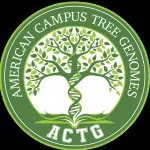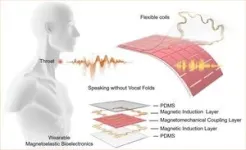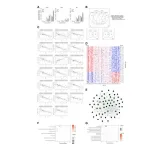(Press-News.org) Pears are big business in the Pacific Northwest US. But did you know that traditional pear breeding has remained largely unchanged for centuries? This slow process is difficult and costly, requiring the long-term commitment of labor, materials, and land-space resources. However, traditional pear breeding might get some help from genomics, thanks to a unique collaboration between students, scientists, and the pear industry fostered through an initiative called the American Campus Tree Genomes (ACTG).
ACTG was born from two professors’ desire to memorialize Auburn University’s iconic Toomer’s Oak trees that were poisoned during the 2010 Auburn University football season. Their plan: sequence the oak’s DNA and create the first-ever live-oak reference genome. To sweeten the pot, they decided to create a semester-long course so that actual Auburn students could take part in sequencing the Auburn oak trees.
“ACTG leverages iconic and economically valuable trees to bridge the gap between students and cutting-edge genomics,” says ACTG co-founder Alex Harkess, PhD. “Students collaboratively assemble, analyze, and publish tree genomes in prestigious journals, gaining invaluable experience.”
The first semester was a success despite most of the students having never written a manuscript, performed command line bioinformatics, or engaged in plant genomics molecular work. It sparked the now nationwide ACTG initiative, which was officially founded in 2021 by Alex Harkess, PhD, Faculty Investigator at HudsonAlpha Institute for Biotechnology, and Les Goertzen, PhD, Director of the John D. Freeman Herbarium at Auburn University. Other institutions can replicate the experience using their own campus trees as a springboard for scientific and educational endeavors.
ACTG is disrupting traditional academic models, offering students a unique entry point into the world of genomic research. The initiative transcends textbook learning, immersing participants in the actual process of assembling, analyzing, and publishing tree genomes in esteemed scientific journals. Students in this course have access to cutting-edge genome sequencing techniques and bioinformatic skills through experts at HudsonAlpha. By working on genuine research projects with tangible outcomes, students gain confidence and experience, shaping their trajectories toward successful careers in the ever-evolving field of genomics.
“This course is a welcoming opportunity for students and trainees to not just interact with a completely new idea but become proficient in it no matter their skill level. I had no previous experience with bioinformatics, and I came out with an entirely new, highly marketable skill set,” says Harrison Estes, an Auburn University ‘23 grad who participated in the pear genome class. He is currently a graduate student at the University of Wisconsin and credits the ACTG class as helping him achieve this goal.
The emphasis on student participation extends beyond technical training. ACTG actively addresses barriers to STEM entry and persistence, providing valuable opportunities for individuals without access to advanced technologies. The ACTG team seeks out participation from small universities and colleges, community and junior colleges, and HBCUs that lack mature genetics and bioinformatics training pipelines.
The transformative power of ACTG goes beyond equipping students with invaluable skills and experience. By delving into real-world research projects, ACTG participants translate their knowledge into tangible applications that directly benefit the scientific community and economically important industries.
In the case of the pear industry, a cohort of Auburn students in the ACTG initiative worked with pear experts at Washington State University and USDA ARS to create a high-quality pear genome. The meticulous work of the ACTG students yielded a fully phased chromosome-scale assembly, a significant advancement over previous efforts.
The d’anjou genome assembly, recently published as a featured article in G3: Genes, Genomes, Genetics, reveals thousands of genomic variants which are of great importance to pear breeding efforts. This high-quality resource unlocks a treasure trove of information for pear breeders. The new genome assembly is also an important tool for studies on the evolution, domestication, and molecular breeding of pear.
“The ACTG: American Campus Tree Genomes program not only built high-quality genomic resources for a valuable pear cultivar that will ultimately benefit growers and consumers alike, but it educated nearly 20 students and scientists in the needs of the apple and pear industry,” said Ines Hanrahan, PhD, Executive Director, Washington Tree Fruit Research Commission.
The pear is only one of many important tree species in the ACTG pipeline. Learn more about the American Campus Tree Genomes project here.
Byline: Sarah Sharman, PhD
END
Cracking the pear genome: how students helped unlock a new tool for the pear industry
2024-03-15
ELSE PRESS RELEASES FROM THIS DATE:
How the brain translates motivation into goal-oriented behavior, according to new study
2024-03-15
BIRMINGHAM, Ala. – Hunger can drive a motivational state that leads an animal to a successful pursuit of a goal — foraging for and finding food.
In a highly novel study published in Current Biology, researchers at the University of Alabama at Birmingham and the National Institute of Mental Health, or NIMH, describe how two major neuronal subpopulations in a part of the brain’s thalamus called the paraventricular nucleus participate in the dynamic regulation of goal pursuits. This research provides insight into the mechanisms by which the brain tracks motivational ...
Genome-wide transcriptome profiling and development of age prediction models in the human brain
2024-03-15
“Our approach identified genes that were previously implicated in aging, as well as new ones that may warrant further investigation.”
BUFFALO, NY- March 15, 2024 – A new research paper was published on the cover of Aging (listed by MEDLINE/PubMed as "Aging (Albany NY)" and "Aging-US" by Web of Science) Volume 16, Issue 5, entitled, “Genome-wide transcriptome profiling and development of age prediction models in the human brain.”
Aging-related transcriptome changes in various regions of the healthy human brain have been explored in previous works, however, a study to develop prediction models for age based on the expression levels of specific ...
Speaking without vocal cords, thanks to a new AI-assisted wearable device
2024-03-15
People with voice disorders, including those with pathological vocal cord conditions or who are recovering from laryngeal cancer surgeries, can often find it difficult or impossible to speak. That may soon change.
A team of UCLA engineers has invented a soft, thin, stretchy device measuring just over 1 square inch that can be attached to the skin outside the throat to help people with dysfunctional vocal cords regain their voice function. Their advance is detailed this week in the journal Nature Communications.
The new bioelectric system, developed ...
Rice breakthrough could make automated dosing systems universal
2024-03-15
by Jade Boyd
Special to Rice News
HOUSTON – (March 15, 2024) – Rice University synthetic biologists have found a way to piggyback on the glucose monitoring technology used in automated insulin dosing systems and make it universally applicable for the monitoring and dosing of virtually any drug.
In a recently published study in Nature Communications, researchers in the lab of Caroline Ajo-Franklin demonstrated the technique by modifying a blood-glucose sensor to detect the anticancer drug afimoxifene ...
UTA students earn transformative D.C. fellowships
2024-03-15
Seven undergraduate students from The University of Texas at Arlington headed to Washington, D.C., for a hands-on program to live, learn and intern in the nation’s capital.
Founded in 2001, The Archer Center is the Washington, D.C., campus of the University of Texas System. Students accepted to its Archer Fellowship Program move to the Capitol Hill area of Washington to live with other Archer Fellows and take courses taught by UT faculty and policy experts. The scholars also participate in a ...
Why some newborns develop severe infections
2024-03-15
NEW YORK, NY (March 15, 2024)--Compared to adults, newborns are highly susceptible to infections and these infections can cause serious health complications and even death.
One factor known to affect a newborn’s response to infection is a condition called neonatal neutropenia, in which the infant fails to make enough neutrophils, the immune system’s first responders. What underlies this immune deficiency, which greatly increases a newborn’s susceptibility to infection, is largely unknown, leaving clinicians with little understanding of how to prevent or treat it.
A new study of mice by Columbia University ...
Protein fragments ID two new “extremophile” microbes—and may help find alien life
2024-03-15
Perfectly adapted microorganisms live in extreme environments from deep-sea trenches to mountaintops. Learning more about how these extremophiles survive in hostile conditions could inform scientists about life on Earth and potential life on other planets. In ACS’ Journal of Proteome Research, researchers detail a method for more accurate extremophile identification based on protein fragments instead of genetic material. The study identified two new hardy bacteria from high-altitude lakes in Chile — an ...
Plasma oscillations propel breakthroughs in fusion energy
2024-03-15
Most people know about solids, liquids, and gases as the main three states of matter, but a fourth state of matter exists as well. Plasma—also known as ionized gas—is the most abundant, observable form of matter in our universe, found in the sun and other celestial bodies.
Creating the hot mix of freely moving electrons and ions that compose a plasma often requires extreme pressures or temperatures. In these extreme conditions, researchers continue to uncover the unexpected ways that plasma can move and evolve. By better understanding the motion of plasma, scientists gain valuable insights into solar physics, astrophysics, ...
Specialized nursing facility clinicians improve end-of-life care
2024-03-15
Specialized nursing facility clinicians, or SNFists, may decrease the likelihood of nursing home residents experiencing stressful hospitalizations and improve the quality of life in their last days, according to researchers from Weill Cornell Medicine.
The paper, published in JAMA Network Open on Mar. 15, examined how SNFists uniquely impacted the care of nursing home residents in their last 90 days, compared with those cared for by other clinicians. This large-scale study is the first of its kind.
“The literature has described ...
Fatty food before surgery may impair memory in old, young adults
2024-03-15
COLUMBUS, Ohio – Eating fatty food in the days leading up to surgery may prompt a heightened inflammatory response in the brain that interferes for weeks with memory-related cognitive function in older adults – and, new research in animals suggests, even in young adults.
The study, building upon previous research from the same lab at The Ohio State University, also showed that taking a DHA omega-3 fatty acid supplement for a month before the unhealthy eating and surgical procedure prevented the effects on memory linked to both the high-fat diet and the surgery in aged ...








